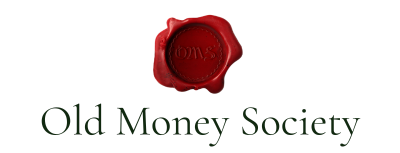Estimated Net Worth: $33 Billion
Dynasty Age: Over 200 Years
Known For: JAB Holding Company, investments in global consumer brands, discreet wealth management
In the opaque world of European industrial dynasties, few names hold more quiet power—and more controversy—than the Reimann family. With an estimated fortune of $33 billion, they are among Germany’s wealthiest families. Yet unlike the loud opulence of new money, the Reimanns have long embraced a culture of silence. It is said that upon turning 18, family heirs sign a pledge to avoid public attention—an oath reflected in their near-total absence from media, social events, or corporate headlines.
But while the Reimanns themselves stay silent, the companies they own speak volumes. Through JAB Holding Company, they control or hold major stakes in some of the most recognizable names in consumer goods and food service: Panera Bread, Krispy Kreme, Pret a Manger, Bally, Belstaff, Coty Inc., and what is now the largest coffee empire in the world, comprising brands like Peet’s Coffee, Stumptown, and Keurig Dr Pepper.
Their wealth is immense, their reach global—and their legacy, complicated.
A Family Built on Chemistry and Consumer Goods
The Reimann fortune traces its roots back to Johann Adam Benckiser, who established a chemical company in Germany in the 1820s. His son-in-law, Karl Ludwig Reimann, became a partner and eventually took over the business. Under successive generations, the company grew into Benckiser, known for industrial chemicals and consumer cleaning products.
In the 1980s, the family merged their business with British consumer goods company Reckitt & Colman, forming Reckitt Benckiser—now a global giant behind products like Lysol, Finish, and Clearasil.
But the family’s future would pivot toward a new era with the formation of JAB Holding Company, named after the founder Johann Adam Benckiser. It was here that a new chapter of global consumer dominance began—engineered not by the family themselves, but by a trusted trio of managers: Peter Harf, Bart Becht, and Olivier Goudet.
JAB Holding: The Billionaire’s Quiet Empire
Today, JAB Holding is one of the most powerful private investment firms in the world, managing a portfolio worth over $19 billion. Structured like a family office, JAB is the mechanism through which the Reimann heirs invest their inherited wealth.
Some of JAB’s most notable assets include:
- Panera Bread (acquired 2017)
- Krispy Kreme
- Pret a Manger
- Peet’s Coffee
- Einstein Bros. Bagels
- Keurig Dr Pepper
- Coty Inc. (beauty and fragrance)
- Bally, Belstaff, Jimmy Choo (former stakes in luxury fashion)
JAB’s strategy has been simple and effective: acquire iconic brands with strong consumer loyalty, streamline their operations, and build global scale. While the family retains final authority over investments, they are not involved in day-to-day operations—preferring a boardroom in the shadows to a seat in the spotlight.
A Disturbing Past: The Nazi-Era Revelations
In 2019, the Reimann family faced a reckoning. A historian commissioned by four family heirs—among them Peter Harf, JAB’s longtime partner—discovered deeply troubling records from Germany’s Nazi era.
According to the historian’s findings, both Albert Reimann Sr. and Albert Jr. were committed National Socialists and used forced labor in their factories during the Second World War. The extent of the abuse shocked even the family themselves.
“We were speechless… We were ashamed and turned white,” said Harf. “You cannot gloss over any of that. Those crimes are abhorrent.”
The family publicly acknowledged their guilt, with Harf stating bluntly:
“Albert Reimann senior and Reimann junior were guilty… they belonged actually in prison.”
In response, the family pledged a €10 million donation to support organizations dedicated to Holocaust survivors and remembrance efforts. While this was seen as a step toward accountability, critics noted that it paled in comparison to the scale of the family’s wealth and the harm inflicted during the Nazi regime.
The Heirs: Discreet Wealth and Private Lives
Despite their billions, the Reimann heirs remain fiercely private. Here’s what is known about some of the family members:
Renate Reimann-Haas
A clarinet player and former chairwoman of a local music association in Laudenbach, she lives an almost monastic existence of privacy. Renate moved to Austria in 2006, renounced her German residency, and maintains almost zero media presence. Forbes estimated her net worth at $3.9 billion in 2021.
Wolfgang Reimann
Born in 1953 and adopted by Albert Reimann Sr., Wolfgang inherited 11.1% of the family’s holdings. He spearheaded JAB’s expansion into beauty and fashion, including the purchase of Coty Inc. and luxury fashion label Jimmy Choo via Labelux, a short-lived venture that served as JAB’s high-end fashion arm.
Stefan Reimann-Andersen
Stefan, along with other siblings, acts strictly as a shareholder. He plays no role in JAB’s operations, preferring distance from business activity.
Matthias Reimann
Little is publicly known about Matthias, reflecting the family’s pattern of minimal exposure. He is listed as a shareholder, not an operator.
A Wealthy Future Shaped by a Troubled Past
The Reimanns’ story is not unique among Europe’s dynastic fortunes: built on industry, tested by war, revived by consolidation, and now stewarded by investment advisors. But what sets them apart is the scale of their modern empire—and the growing conversation around ethical inheritance.
Their family office, Deutsche Kontor Privatbank, was even established in part to serve other wealthy families, offering wealth management advice rooted in the lessons they learned from managing their own billions.
Yet no amount of asset diversification can erase history. The Nazi-era revelations will forever be part of the Reimann legacy. What remains to be seen is whether future generations will continue the family’s commitment to historical accountability—or retreat once again into comfortable silence.
Final Thoughts
In an era of celebrity billionaires and social media tycoons, the Reimann family stands out as a throwback to a different kind of wealth: insulated, generational, and deeply rooted in tradition—for better and for worse.
Their story is a mirror of 20th-century Europe: industrial ambition, wartime complicity, post-war reinvention, and the cold calculus of modern capitalism. Through it all, they have held firm to one principle: power prefers the shadows.
